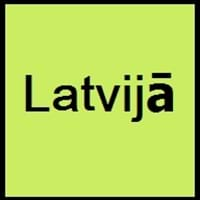Khasi vs Latvian
- Khasi language contain a large number of loanwords from Bengali and Hindi Languages.
- There is significant dialectal variation in khasi language, since several dialects have only partial mutual intelligibility.
- The first written form of Latvian dates from 16th century was found in religious texts.
- The old latvian language was based on the a Gothic script.
Khasi and Latvian Language History
Comparison of Khasi vs Latvian language history gives us differences between origin of Khasi and Latvian language. History of Khasi language states that this language originated in Not Available whereas history of Latvian language states that this language originated in 1530. Family of the language also forms a part of history of that language. More on language families of these languages can be found out on Khasi and Latvian Language History.
Khasi and Latvian Greetings
People around the world use different languages to interact with each other. Even if we cannot communicate fluently in any language, it will always be beneficial to know about some of the common greetings or phrases from that language. This is where Khasi and Latvian greetings helps you to understand basic phrases in Khasi and Latvian language. Khasi word for "Hello" is Kumno or Latvian word for "Thank You" is Paldies. Find more of such common Khasi Greetings and Latvian Greetings. These greetings will help you to be more confident when conversing with natives that speak these languages.
Khasi vs Latvian Difficulty
The Khasi vs Latvian difficulty level basically depends on the number of Khasi Alphabets and Latvian Alphabets. Also the number of vowels and consonants in the language plays an important role in deciding the difficulty level of that language. The important points to be considered when we compare Khasi and Latvian are the origin, speaking countries, language family, different greetings, speaking population of these languages. Want to know in Khasi and Latvian, which language is harder to learn? Time required to learn Khasi is Not Available while to learn Latvian time required is 44 weeks.





